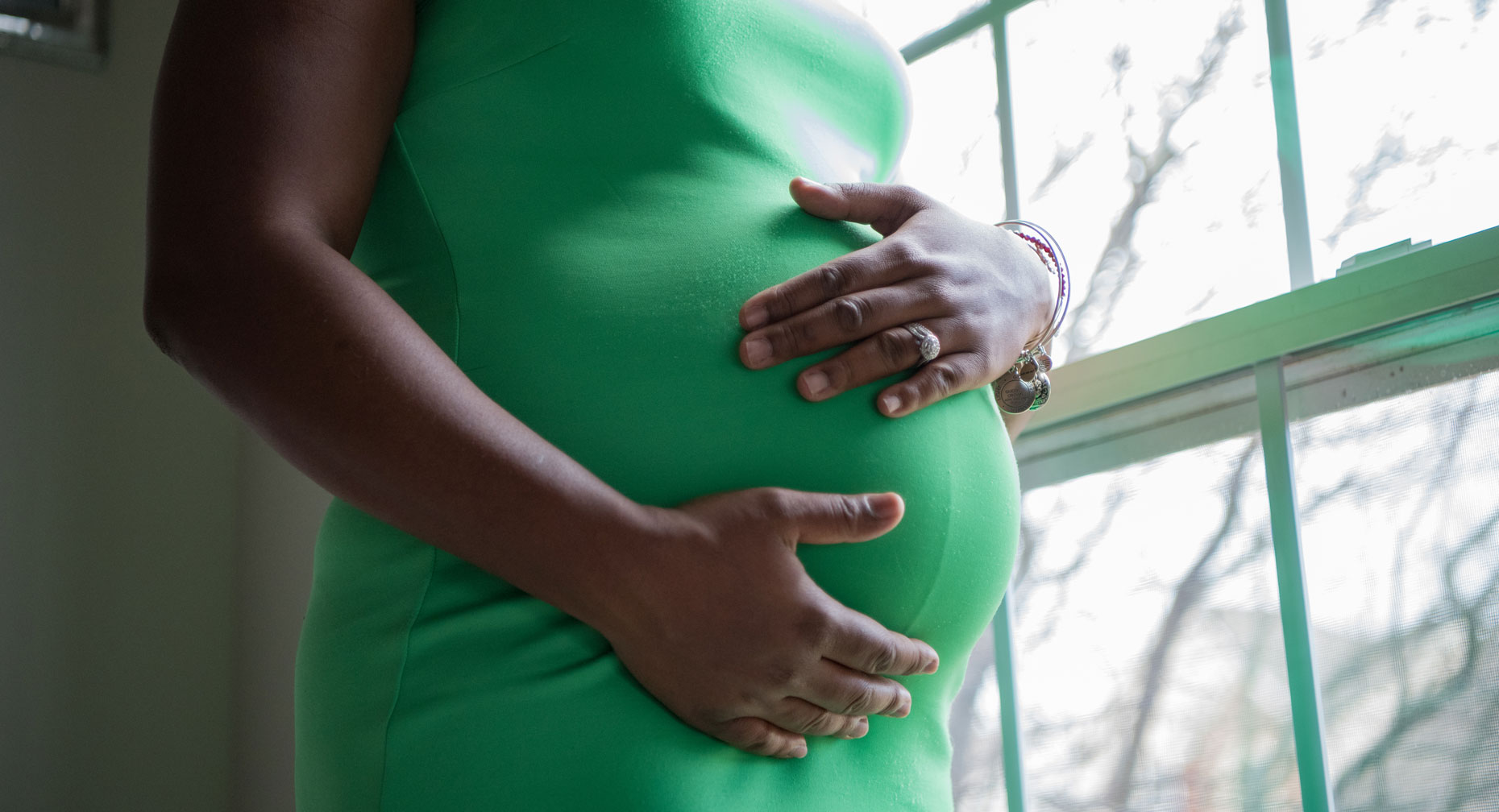I’m Pregnant! Why Am I Bleeding?

Answer a few questions and we'll provide you with a list of primary care providers that best fit your needs.
Many moms-to-be experience bleeding while they are pregnant. In fact, the American Pregnancy Association says studies show that 20-30 percent of women experience some degree of bleeding during early pregnancy. But how do you know how much bleeding is normal and when it’s a cause for concern? It depends on how far along you are, and how severe the bleeding is.
First, know how to tell spotting from bleeding.
Spotting is very light bleeding. It is common in the first trimester. The blood will be light brown or pink, similar to what you see at the end of a period.
Bleeding is heavier. The blood is bright red and is more like the bleeding you experience when having your period.
If you’re thinking about it, call your doctor.
When to Call the Doctor
David McKenna, MD, a Maternal-Fetal Medicine specialist with Perinatal Partners, advises calling your doctor if you see any sign of bleeding during pregnancy and have not yet talked to your doctor about it. This is especially the case for women who are pregnant for the first time. “Explain what’s happening to your doctor. Talk about your next steps and if – and when – you should call back,” he says.
Why You May Bleed During Pregnancy
First Half of Pregnancy
Spotting during this time is common, especially after sex, a pelvic exam, or a transvaginal ultrasound. In these cases, the blood might be coming from the cervix. It becomes tender during pregnancy and could be a bit inflamed or irritated. This type of bleeding can also occur prior to a miscarriage or with an ectopic pregnancy, but most often it is not a cause for concern.
Heavier bleeding during the first trimester can also be a sign of a miscarriage or ectopic pregnancy. This bleeding doesn’t mean a miscarriage will occur, or that you have an ectopic pregnancy. About half of pregnant women who have bleeding do not miscarry. The most important thing you can do is to let you doctor know about any bleeding, so that you can evaluated for the cause.
Second Half of Pregnancy
During the late second and entire third trimester, causes of bleeding can include:
- Placenta previa. This occurs when the placenta is low in the uterus and partly or completely covers the cervix. Most women notice no pain with the bleeding. Placenta previa occurs in 1 in 200 pregnancies and requires immediate attention when there is bleeding. Placenta previa often resolves on its own, especially when it is found early during pregnancy. Other times it can lead to an early delivery by Cesarean section.
- Placental abruption. This occurs when the placenta detaches from the uterine wall before or during labor. It can cause serious complications if it is not found early. It often comes with painful contractions. Placental abruptions are rare, occurring in just 1 percent of pregnant women. Risk factors for placental abruptions include maternal smoking, drug use and high blood pressure.
- Preterm labor. Defined as labor starting prior to 37 weeks’ gestation, preterm labor might also include these signs: regular contractions, cramping, back pain and increased pelvic pressure. If you think you’re going into early labor, call your doctor right away.
Be Prepared for These Questions
If you experience bleeding during pregnancy, be ready to answer these questions when you call or visit your doctor:
- How far along are you?
- When did you first have a positive pregnancy test?
- Have you had an ultrasound, and if so, what did it show?
- When did the bleeding start?
- Were there any obvious causes? For example, have you recently had intercourse or a vaginal exam?
- How heavy has the bleeding been?
- Have you had any pain or other symptoms with the bleeding?
If you are asked to make an appointment, your doctor is likely to check your cervix with a speculum. You might have an ultrasound or other testing to help learn the cause of the bleeding.
Many factors can cause spotting and bleeding during pregnancy. Because of that, it’s best to talk with your doctor if you have any bleeding. The bottom line is, if you’re thinking about it, call your doctor.“That’s what we’re here for,” says Dr. McKenna.
Answer a few questions and we'll provide you with a list of primary care providers that best fit your needs.
Source: David S. McKenna, MD; Perinatal Partners; American Pregnancy Association; The American Congress of Obstetricians and Gynecologists; Whattoexpect.com





